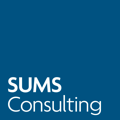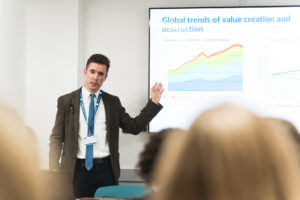Public Affairs – the Trends
The day kicked off with an excellent overview of the policy and political landscape for universities. Andrew Snowden, associate director of external relations at the University of Salford, led a session on the context for external engagement and some practical ideas for how to approach this strategically at a time of great political uncertainty.
We discussed how universities have, to an extent, alienated political decision-makers and currently have few friends in government. To get traction, we need to focus on the positive impact we can make – how we can help – rather than bemoaning decisions we may not like. We can do this by showing what value-for-money we provide in its various guises. This includes:
- Our involvement in research and enterprise
- The contribution we can make to the industrial strategy in a post-Brexit landscape
- The socio-economic impact we have in our locations.
We also talked about the importance of engagement across the political spectrum. With a general election in five weeks’ time, understanding Labour’s National Education Service proposals is as important as understanding Conservative policy.
Brand
I co-presented a case study on brand evolution with Fiona Blair, director of marketing, communications and engagement at the University of Reading. This five-week project took a staff and student body disconnected and disillusioned with their university’s brand positioning on a journey to define what Reading is truly all about. They worked together to create an authentic set of values and personality traits to represent the institution. They then successfully articulated this in a single, highly impactful phrase – their brand essence.
The importance of stripping away marketing veneer and getting to grips with what the university is really all about was key to the success of this project. The 30 people in the working group represented the breadth and depth of the university. They are now actively engaged in their networks sharing the outcomes with their colleagues, evangelising about the brand, and gathering facts and proof points to help illustrate the brand narrative.
Involving Academics in Conversion Activity
A group discussion on involving academics in student recruitment activity pointed to strategic engagement being the most successful approach. Student number planning and engagement in marketing planning lead to a greater sense of ‘ownership’ by academic teams – with student recruitment being a shared responsibility across universities. To make this truly successful, the time it needs should be recognised in academic workload models. We also agreed the importance of the product life cycle in universities, reflecting the need for evidence-based portfolio review on an ongoing basis.
Research and Enterprise Communications
Natasha Martineau from Imperial College London and Chris Buratta and Jo Enderby from UK Research and Innovation led a lively and informative session. They touched on maximising the effectiveness of research and enterprise communications, optimising impact for the REF, public engagement, and meeting the needs of enterprise funding to align with both local and national strategies.
Marketing and Efficiency
Underpinning the day was the reality that universities are facing big challenges on many fronts and that marketing and communications are integral to helping universities thrive against this backdrop of volatility. SUMS is helping a wide range of members and other clients to improve their operating efficiency. Universities are typically trying to walk the tightrope of reducing their recurrent costs whilst diversifying and growing their income profile. SUMS works with universities to analyse and identify cost-savings through efficiency by looking at a combination of service delivery, staffing and operating models, systems and processes – and then implement effective change.
In the marketing and communications field, we’re typically involved in:
- Benchmarking-based reviews of student recruitment, international recruitment, and admissions teams
- Student journey mapping and optimisation
- Brand reviews
- Web reviews
- Portfolio reviews.
Just as importantly, we’re working with universities on growing new business streams – such as CPD and apprenticeships – by helping with readiness assessments, business cases and market reviews.
This fascinating day was a reminder of the challenges we face as a sector. But in the spirit of being focused on solutions, not problems, it was also a great reminder of the positive role marketing and communications can play in helping universities transform their business for a better future.
If we’ve touched on anything above that relates to your institution, feel free to contact us to see how we can help you.









